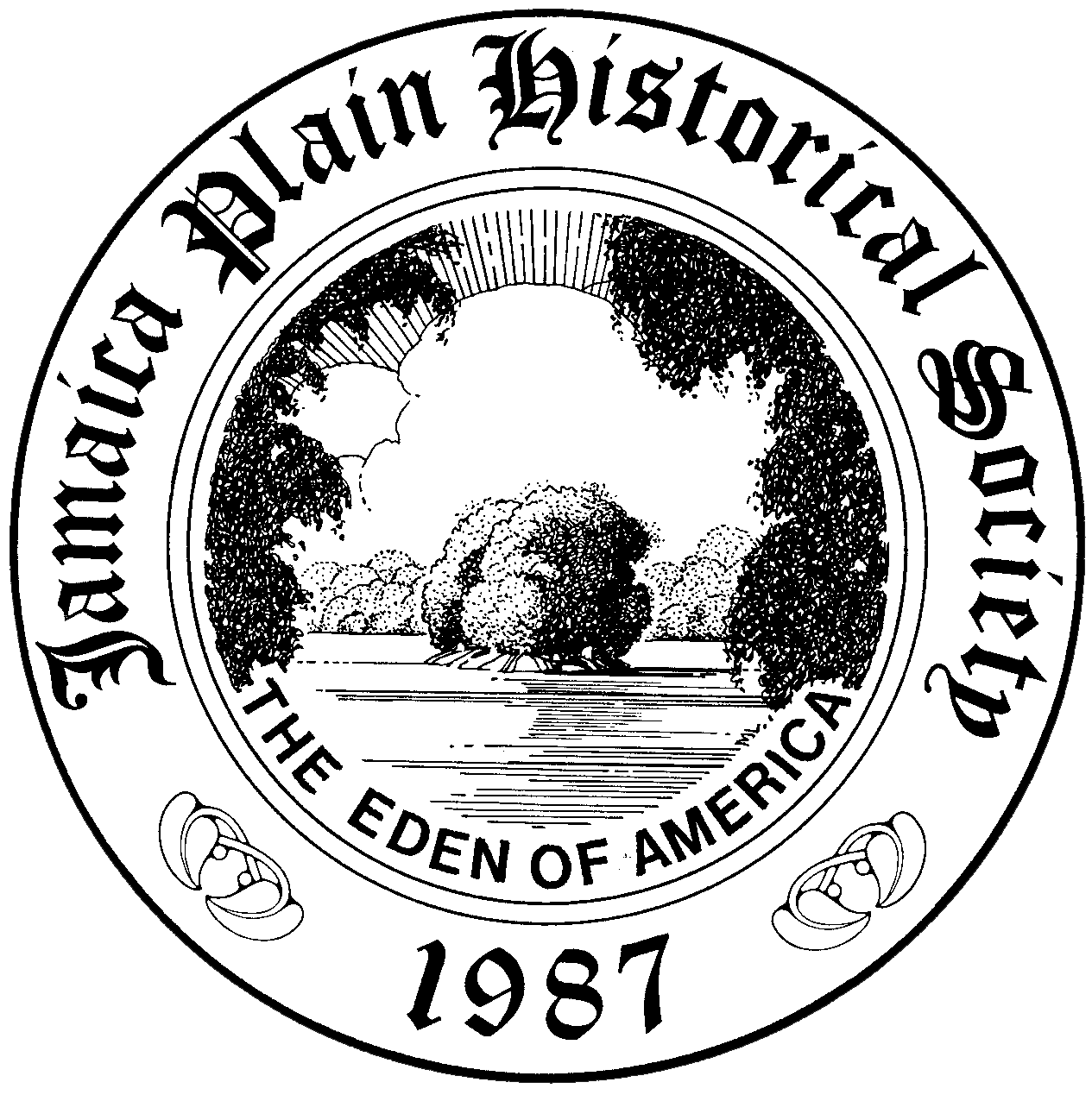Jamaica Plain Women Who Made History
Wearing sturdy shoes and floppy sunhats, about sixty people accompanied historian Mary Smoyer this past Sunday on a 'round-the-town walking tour of women's history in Jamaica Plain. The guided walk, sponsored by the Jamaica Plain Historical Society, emphasized a lot of "famous firsts:" first woman elected to Beacon Hill, first female M.I.T. student, and first woman publisher in the United States. Each woman called Jamaica Plain home for some part of her life between 1839 and 1959.
Marie Zakrewska
The first tour site was the home of Marie Zakrewska at 6 Peter Parley Road, a neatly painted white house one block off Washington Street. Smoyer said Zakrewska came to the United States from Germany in 1853 hoping to practice medicine. But when she graduated from Western Reserve Medical College in 1862, not a single hospital would hire her or even rent her office space. "Female doctors," Smoyer said, "were considered off the beaten track." Zakrewska solved the problem by founding her own hospital. The New England Hospital for Women and Children, which hired only female doctors, served only female patients. The hospital later opened a nurse's training school and graduated America's first trained nurses.
Margaret Fuller
Margaret Fuller, the second famous Jamaica Plain woman on the tour, was also frustrated by the limits imposed on women. Tour assistant Emogene Gilman, standing in front of the Margaret Fuller School on Glen Road, described a brilliant-minded but "lopsided" young woman. Fuller, born in 1810, was an academic whiz with a great head on her shoulders but few domestic skills. She found herself starved for stimulating intellectual employment. Men were decidedly not interested in her.
Engraving of Margaret Fuller.
From 'A Portrait Gallery of Eminent Men and Women of Europe and America, with Biographies' by Evert A. Duykinck. 1873. Used with permission of The Noel Collection.
Frustrated by social and economic restrictions, Fuller met the challenge. At 29 years old she created the first of a long series of feminist conversation groups. They were attended by the best-educated women in the area who met to discuss women's role in society. Fuller, also an author and critic, became a leading thinker of her day. Her thoughts, considered quite radical, were based on a belief in creativity, intuition and the human spirit and made their mark on the times.
Julia Oliver O'Neil
The tour group crossed back to a spot across from Green Street station to hear about Julia Oliver O'Neil. Born in 1909, O'Neil was the mother of ten daughters and two sons. She became famous for sewing smart matching outfits for her children to wear in Boston's annual Easter Parade. Photos of the children, lined up tallest to shortest, were printed all over the world. O'Neil's seventh child, Ginny, told tour participants that fan mail came to her mother from as far away as Australia.
Mother Mary Joseph Rogers
At the Bowditch School at 82 Green Street, Smoyer described the life of Mother Mary Joseph Rogers, who founded the Maryknoll Sisters of St. Dominic in 1920. Rogers set up an unusually democratic order, where the sisters shared equally in all seminary work and received extensive professional training.
Elizabeth Peabody
A few blocks east and around the corner is the former site of the former Gordon Hotel, where Elizabeth Peabody lived the last five years of her life. Peabody, who lived from 1804 to 1894, was the mother of the kindergarten movement in America. An intellectual and author, she owned a bookstore at 16 West Street and published "The Dial," a radical literary magazine. Peabody, also the first woman publisher in the United States, published Thoreau's famous essay, "Civil Disobedience."
Pauline Agassiz Shaw
After a stroll over the hill to the intersection of Thomas and Centre Street, Smoyer told tour participants about the life of Pauline Agassiz Shaw, who devoted her life to supporting education.
Shaw, born in 1841, opened the first kindergarten in 1877; five years later she was supporting 37 of them. She also founded day nurseries, the pre-cursors of day care centers, which later became settlement houses.
Susan Walker Fitzgerald
Around the block at 7 Greenough Avenue, the tour group paused in front of the former home of Susan Walker Fitzgerald, the first woman Democrat elected to the Massachusetts State Legislature in 1922. She served one term, and then turned her energies to work with the General Alliance of Unitarian and Other Christian Women. Fitzgerald was a feminist, Smoyer said, who shocked all of Nantucket in 1909 by lecturing on women's rights in her bathing suit.
Emily Greene Balch
In front of the Loring Greenough House and across the street from the Unitarian Church on the corner of Eliot and Centre Streets, Smoyer told the story of Emily Greene Balch, an economist, pacifist and Nobel Peace Prize winner. Balch, born in Jamaica Plain in 1867, was recognized for her work with the International Women's League for Peace and Freedom. She taught at Wellesley College for twenty years, teaching economics from a women's perspective and included the writings of Karl Marx. Balch also focused on immigration issues. "She tried to refute the idea that the best way is the old English Brahmin way," Smoyer said. But Balch was considered too radical. She was dismissed in 1919, became a Quaker and spent the rest of her life working for peace.
Ellen Swallow Richards
Smoyer ended the historical tour at 32 Eliot Street, home of Ellen Swallow Richards. Richards founded the home economics movement. The first female student at M.I.T., she also became the first professor of sanitary engineering in the country. Richards, a chemist, conducted pioneering work in the testing of water and food and used her Eliot Street home as a laboratory. She developed cleaning and cooking techniques that dramatically altered the nature of housework in the United States.
Written by Susan Meyers. Reprinted with permission from the August 30, 1991 Jamaica Plain Gazette. Copyright © Gazette Publications, Inc.


